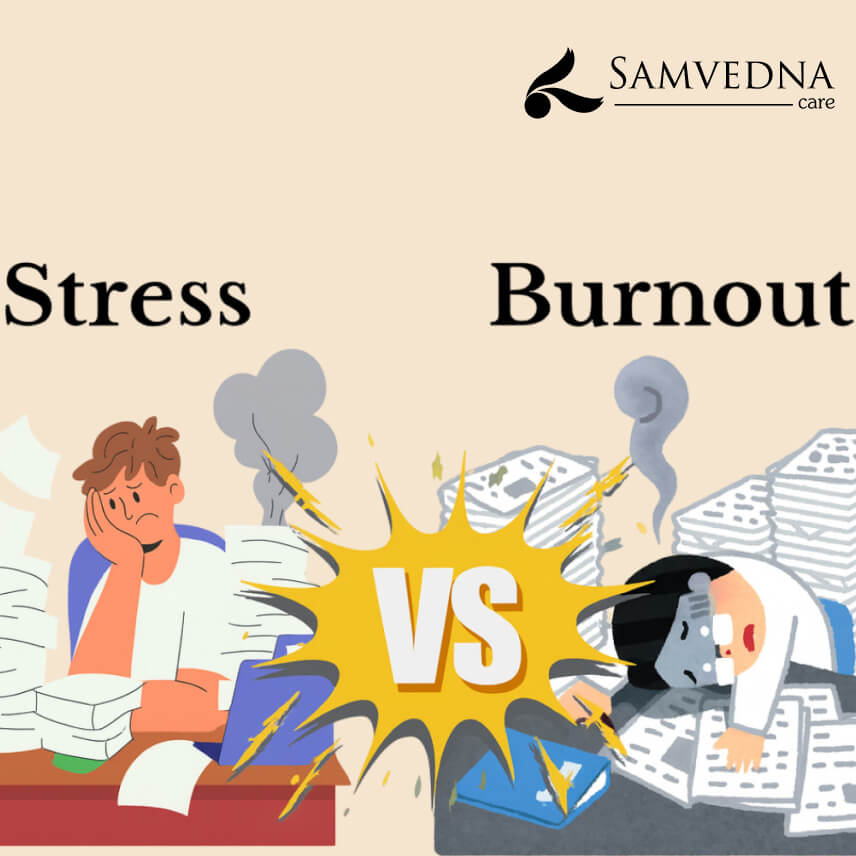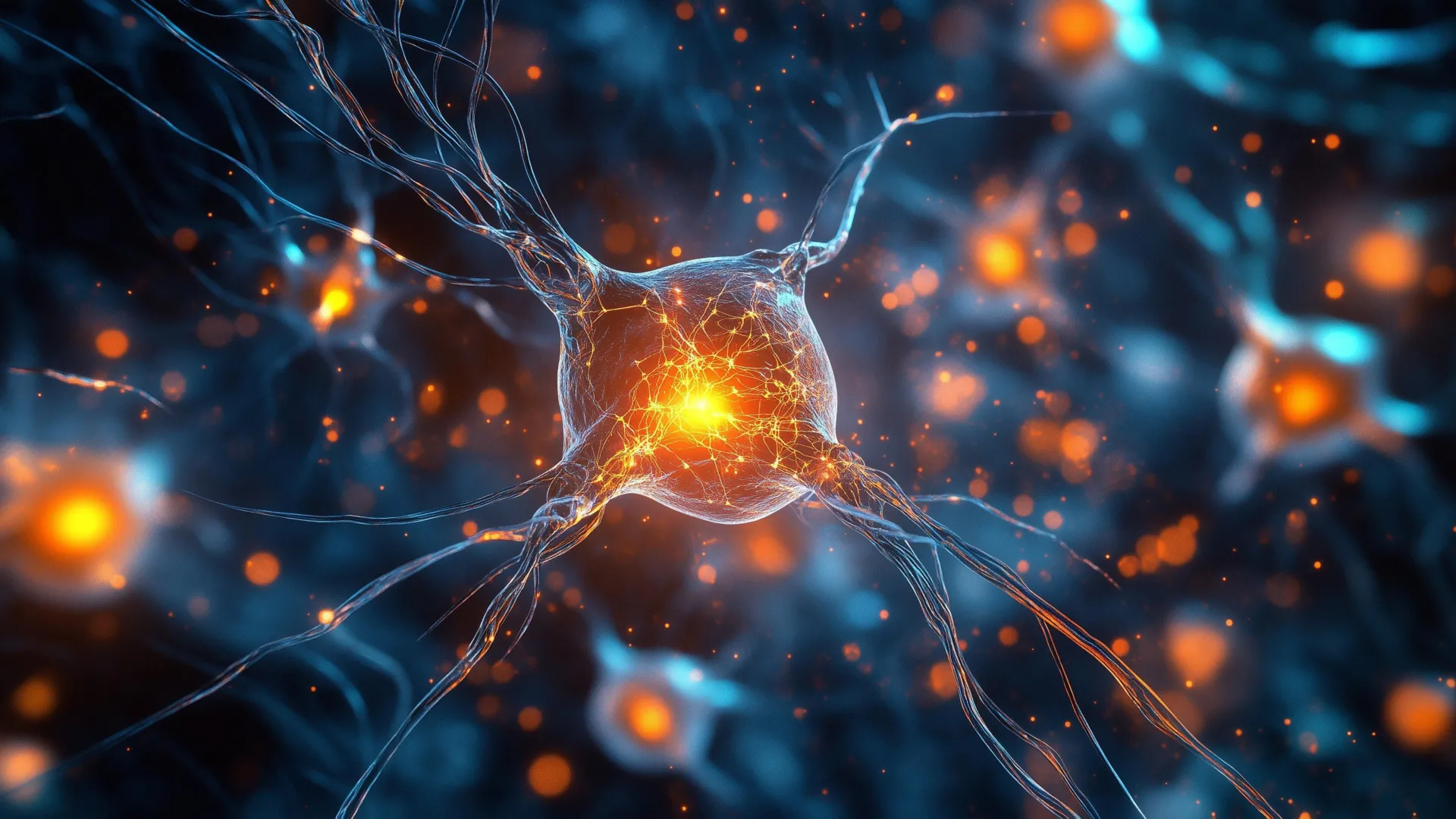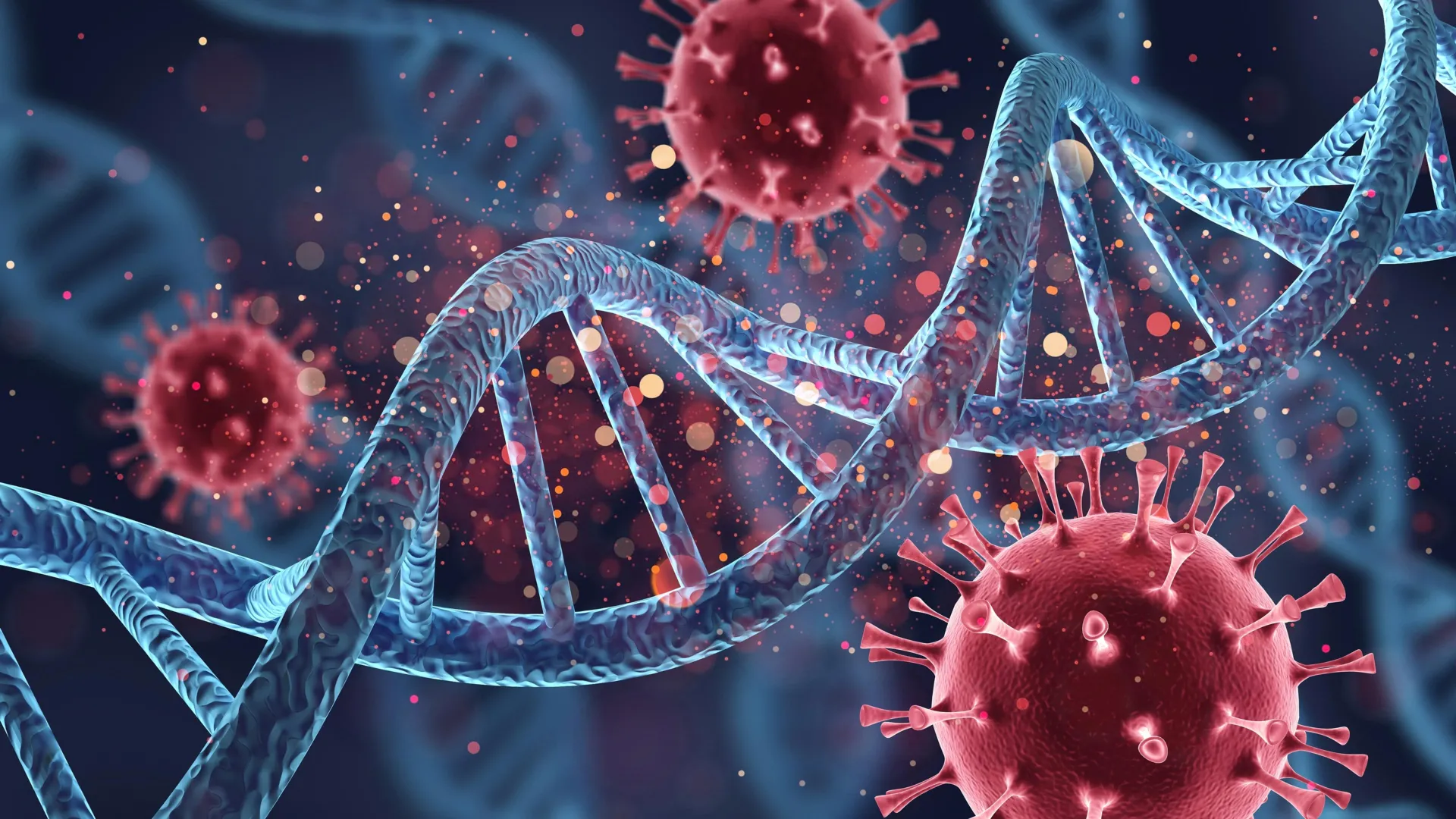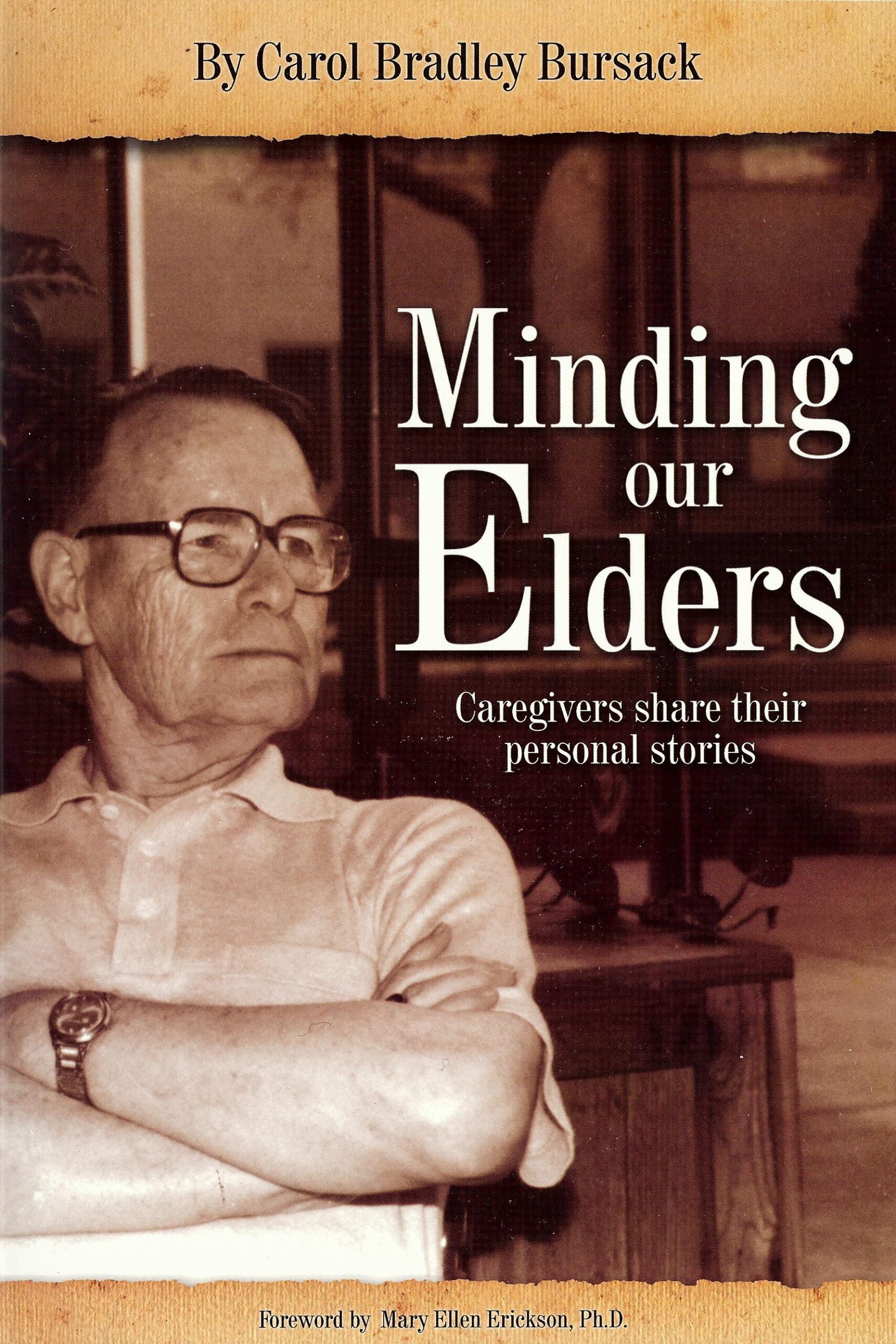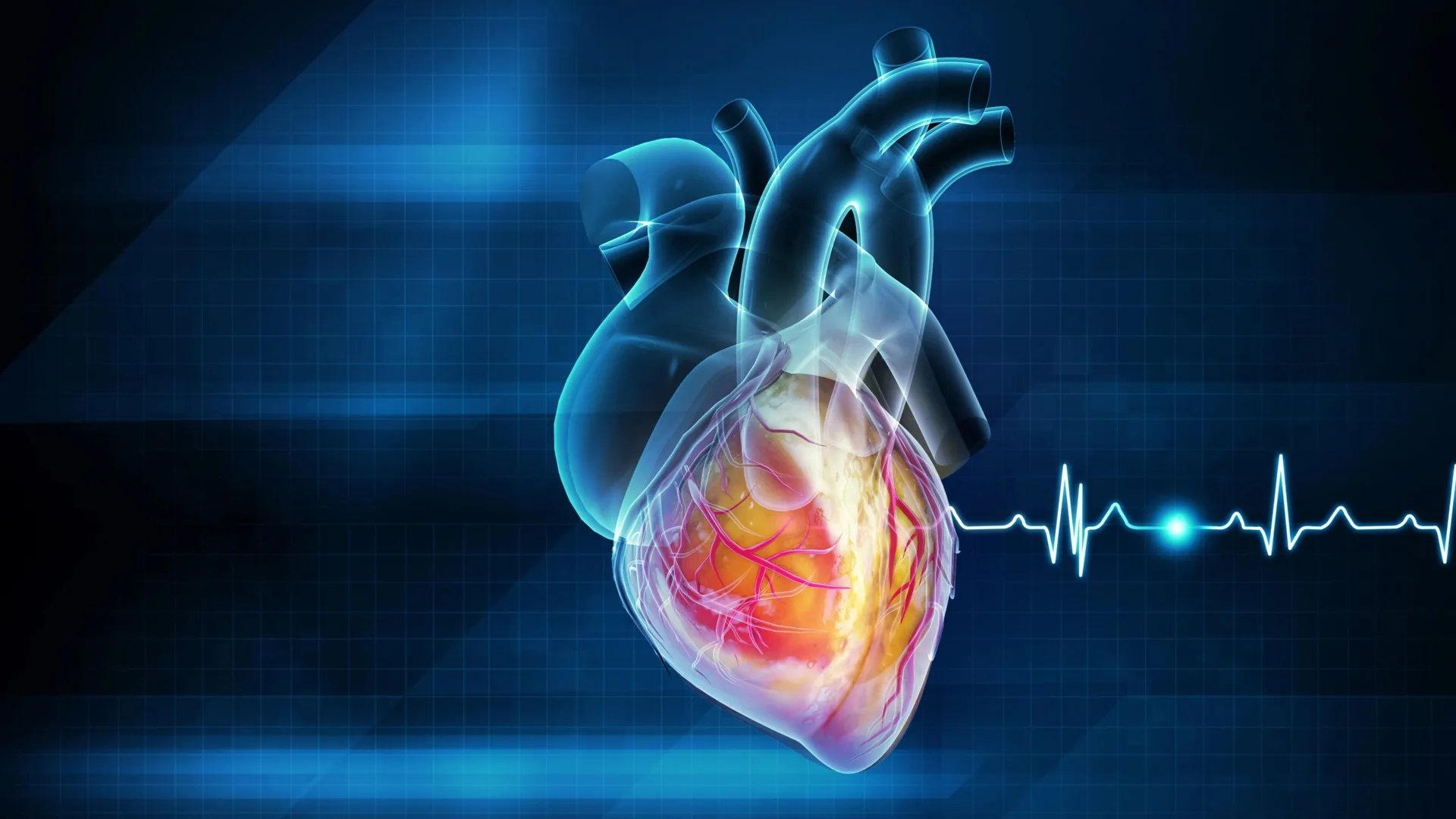Millions face Medicare decisions each year, but many don’t take advantage of tools that can save them money and stress. Insurance marketing often overshadows unbiased options like SHIP, leaving people unaware of better choices. Comparing real costs—not just premiums—can prevent unpleasant surprises, especially when provider networks or drug rules change. New assistance programs for low-income adults offer valuable help for 2026.
http://dlvr.it/TPY9Sl
Sunday, November 30, 2025
Your skin has a built-in cancer defense and sunlight turns it off
Scientists have uncovered how too much sunlight can flip a hidden switch inside skin cells that makes inflammation spiral out of control and increases the risk of cancer. Their research reveals that UV radiation breaks down a protective protein called YTHDF2, which normally prevents a small RNA signal from activating an immune sensor linked to dangerous inflammation. Once that protection is lost, a surprising chain reaction unfolds inside the cell, turning ordinary sun damage into a potential cancer trigger.
http://dlvr.it/TPY0Gr
http://dlvr.it/TPY0Gr
Why some memories last a lifetime while others fade fast
Scientists have uncovered a stepwise system that guides how the brain sorts and stabilizes lasting memories. By tracking brain activity during virtual reality learning tasks, researchers identified molecules that influence how long memories persist. Each molecule operates on a different timescale, forming a coordinated pattern of memory maintenance. The discoveries reshape how scientists understand memory formation.
http://dlvr.it/TPXrMZ
http://dlvr.it/TPXrMZ
Keep An Open Mind When Choosing Assisted Living for Lifelong Farmer
Dear Carol: My dad, now 83, inherited a small farm from his parents. Though he’s sold most of the land, he’s lived...
The post Keep An Open Mind When Choosing Assisted Living for Lifelong Farmer appeared first on Minding Our Elders.
Related Stories
* Finding Caregiver Support Online
* Celebrating Special Occasions When an Older Adult Has Dementia
* Should You Convince Your Aging Parents to Move Closer to You?
http://dlvr.it/TPXjlS
The post Keep An Open Mind When Choosing Assisted Living for Lifelong Farmer appeared first on Minding Our Elders.
Related Stories
* Finding Caregiver Support Online
* Celebrating Special Occasions When an Older Adult Has Dementia
* Should You Convince Your Aging Parents to Move Closer to You?
http://dlvr.it/TPXjlS
Saturday, November 29, 2025
A common nutrient deficiency may be silently harming young brains
Scientists studying young adults with obesity discovered early indicators of brain stress that resemble patterns seen in cognitive impairment. The group showed higher inflammation, signs of liver strain and elevated neurofilament light chain, a marker of neuron injury. Low choline levels appeared closely tied to these changes. The results hint that early metabolic disruptions may quietly influence the brain long before symptoms emerge.
http://dlvr.it/TPXWMk
http://dlvr.it/TPXWMk
Millions are about to choose the wrong Medicare plan
Millions face Medicare decisions each year, but many don’t take advantage of tools that can save them money and stress. Insurance marketing often overshadows unbiased options like SHIP, leaving people unaware of better choices. Comparing real costs—not just premiums—can prevent unpleasant surprises, especially when provider networks or drug rules change. New assistance programs for low-income adults offer valuable help for 2026.
http://dlvr.it/TPXLQp
http://dlvr.it/TPXLQp
Repeated head impacts may quietly break the brain’s cleanup system
Researchers found that repeated head impacts can disrupt a key system that helps the brain wash away waste. In professional fighters, this system initially seems to work harder after trauma, then declines over time. MRI scans revealed that these changes may show up years before symptoms do. The work could help identify at-risk athletes earlier in their careers.
http://dlvr.it/TPX55p
http://dlvr.it/TPX55p
Friday, November 28, 2025
Scientists detect hidden brain damage years before MS symptoms
Scientists at UCSF have uncovered evidence that multiple sclerosis silently damages the brain years before diagnosis. By studying proteins in blood samples, they identified early immune signals and markers of nerve damage. The findings point to IL-3 and MOG as crucial early indicators — and open the door to new diagnostic blood tests and preventive strategies.
http://dlvr.it/TPWqk3
http://dlvr.it/TPWqk3
Your body may already have a molecule that helps fight Alzheimer’s
Spermine, a small but powerful molecule in the body, helps neutralize harmful protein accumulations linked to Alzheimer’s and Parkinson’s. It encourages these misfolded proteins to gather into manageable clumps that cells can more efficiently dispose of through autophagy. Experiments in nematodes show that spermine also enhances longevity and cellular energy production. These insights open the door to targeted therapies powered by polyamines and advanced AI-driven molecular design.
http://dlvr.it/TPWcnn
http://dlvr.it/TPWcnn
Handling Sibling Criticism During the Holidays
Family caregivers often put their lives on hold to care for their loved ones. In cases where adult children are caring for...
The post Handling Sibling Criticism During the Holidays appeared first on Minding Our Elders.
Related Stories
* Reducing Loneliness: How to Help Older Adults During the Holidays
* Celebrating Special Occasions When an Older Adult Has Dementia
* Finding Caregiver Support Online
http://dlvr.it/TPWX4y
The post Handling Sibling Criticism During the Holidays appeared first on Minding Our Elders.
Related Stories
* Reducing Loneliness: How to Help Older Adults During the Holidays
* Celebrating Special Occasions When an Older Adult Has Dementia
* Finding Caregiver Support Online
http://dlvr.it/TPWX4y
Your body may already have a molecule that helps fight Alzheimer’s
Spermine, a small but powerful molecule in the body, helps neutralize harmful protein accumulations linked to Alzheimer’s and Parkinson’s. It encourages these misfolded proteins to gather into manageable clumps that cells can more efficiently dispose of through autophagy. Experiments in nematodes show that spermine also enhances longevity and cellular energy production. These insights open the door to targeted therapies powered by polyamines and advanced AI-driven molecular design.
http://dlvr.it/TPW6rS
http://dlvr.it/TPW6rS
Thursday, November 27, 2025
New nasal nanodrops wipe out brain tumors in mice
A new nasal-delivered nanotherapy shows promise against aggressive glioblastoma tumors. By activating the STING immune pathway using gold-core spherical nucleic acids, researchers were able to reach the brain without invasive surgery. When paired with drugs that boost T-cell activity, the treatment eliminated tumors in mice and built long-lasting immunity. The results suggest a powerful new direction for brain cancer immunotherapy.
http://dlvr.it/TPVrPv
http://dlvr.it/TPVrPv
A common nutrient deficiency may be silently harming young brains
Scientists studying young adults with obesity discovered early indicators of brain stress that resemble patterns seen in cognitive impairment. The group showed higher inflammation, signs of liver strain and elevated neurofilament light chain, a marker of neuron injury. Low choline levels appeared closely tied to these changes. The results hint that early metabolic disruptions may quietly influence the brain long before symptoms emerge.
http://dlvr.it/TPVNP0
http://dlvr.it/TPVNP0
Happy Thanksgiving from Minding Our Elders!
Sending wishes to all of you for a fulfilling day. I’m thankful for the many things in my life, and that includes...
The post Happy Thanksgiving from Minding Our Elders! appeared first on Minding Our Elders.
Related Stories
* Cherish Holiday Gatherings with Aging Parents Leaving Serious Discussions for Later
* Celebrating Special Occasions When an Older Adult Has Dementia
* Reducing Loneliness: How to Help Older Adults During the Holidays
http://dlvr.it/TPVGNM
The post Happy Thanksgiving from Minding Our Elders! appeared first on Minding Our Elders.
Related Stories
* Cherish Holiday Gatherings with Aging Parents Leaving Serious Discussions for Later
* Celebrating Special Occasions When an Older Adult Has Dementia
* Reducing Loneliness: How to Help Older Adults During the Holidays
http://dlvr.it/TPVGNM
A common nutrient deficiency may be silently harming young brains
Scientists studying young adults with obesity discovered early indicators of brain stress that resemble patterns seen in cognitive impairment. The group showed higher inflammation, signs of liver strain and elevated neurofilament light chain, a marker of neuron injury. Low choline levels appeared closely tied to these changes. The results hint that early metabolic disruptions may quietly influence the brain long before symptoms emerge.
http://dlvr.it/TPVBPF
http://dlvr.it/TPVBPF
Wednesday, November 26, 2025
A tiny enzyme may hold the key to safer pain relief
Researchers have uncovered a surprising way the brain switches pain on, revealing that neurons can release an enzyme outside the cell that activates pain signals without disrupting normal movement or sensation. This enzyme, called VLK, modifies nearby proteins in a way that intensifies pain and strengthens connections tied to learning and memory. Removing VLK in mice dramatically reduced post-surgery pain while leaving normal function untouched, offering a promising path toward safer, more targeted pain treatments.
http://dlvr.it/TPTtXS
http://dlvr.it/TPTtXS
Reducing Loneliness: How to Help Older Adults During the Holidays
There is a lot of pressure on people to enjoy themselves during the holidays. The season is supposed to be merry and...
The post Reducing Loneliness: How to Help Older Adults During the Holidays appeared first on Minding Our Elders.
Related Stories
* Cherish Holiday Gatherings with Aging Parents Leaving Serious Discussions for Later
* Celebrating Special Occasions When an Older Adult Has Dementia
* Finding Caregiver Support Online
http://dlvr.it/TPTG5j
The post Reducing Loneliness: How to Help Older Adults During the Holidays appeared first on Minding Our Elders.
Related Stories
* Cherish Holiday Gatherings with Aging Parents Leaving Serious Discussions for Later
* Celebrating Special Occasions When an Older Adult Has Dementia
* Finding Caregiver Support Online
http://dlvr.it/TPTG5j
Is It Stress or Burnout? Take This 5-Minute Self-Check to Know the Difference
In today’s always-on work culture, feeling exhausted or mentally drained has almost become normal. Many people assume this is simply “stress,” but sometimes it’s something deeper — burnout, a state of emotional and physical depletion that doesn’t go away with a weekend break. Stress and burnout often look similar on the surface, but they are […]
http://dlvr.it/TPT3zB
http://dlvr.it/TPT3zB
Tuesday, November 25, 2025
New evidence shows tirzepatide and semaglutide strongly protect the heart
A massive real-world study comparing tirzepatide and semaglutide reveals both drugs deliver strong, early cardiovascular protection—reducing heart attack, stroke, and death in adults with type 2 diabetes. While companies have claimed large differences favoring their own medications, researchers found only modest distinctions between the two blockbuster GLP-1 drugs.
http://dlvr.it/TPSmPC
http://dlvr.it/TPSmPC
Scientists find a hidden weak spot that may trigger Alzheimer’s
Scientists have found that a mutation tied to Alzheimer’s disrupts the production and quality of exosomes—tiny cell-made communication packets. Cells with the defective SORLA protein generate fewer exosomes and ones far less able to support nearby brain cells. This weakness may be a key driver of Alzheimer’s development. The research points to new treatment strategies that enhance or restore exosome function.
http://dlvr.it/TPSLcM
http://dlvr.it/TPSLcM
Celebrating Special Occasions When an Older Adult Has Dementia
When a senior has dementia, celebrating holidays, birthdays and other special occasions becomes increasingly complicated. As caregivers, should we help our loved...
The post Celebrating Special Occasions When an Older Adult Has Dementia appeared first on Minding Our Elders.
Related Stories
* Finding Caregiver Support Online
* Cherish Holiday Gatherings with Aging Parents Leaving Serious Discussions for Later
* Living with Elderly Parents: Do You Regret the Decision?
http://dlvr.it/TPSDRv
The post Celebrating Special Occasions When an Older Adult Has Dementia appeared first on Minding Our Elders.
Related Stories
* Finding Caregiver Support Online
* Cherish Holiday Gatherings with Aging Parents Leaving Serious Discussions for Later
* Living with Elderly Parents: Do You Regret the Decision?
http://dlvr.it/TPSDRv
Monday, November 24, 2025
Tips for Checking on Older Loved Ones during Holidays
Whether you live down the block or across the country, holiday visits are a great opportunity to take a closer look at your older loved one and their surroundings. Take time to observe any changes in an older family member’s behaviors or lifestyle during dinners, gift exchanges, parties, etc. Changes may vary widely, from outwardly … Continue reading Tips for Checking on Older Loved Ones during Holidays →
The post Tips for Checking on Older Loved Ones during Holidays appeared first on Aging Life Care Association.
http://dlvr.it/TPRqR5
The post Tips for Checking on Older Loved Ones during Holidays appeared first on Aging Life Care Association.
http://dlvr.it/TPRqR5
Ancient viruses hidden inside bacteria could help defeat modern infections
Penn State scientists uncovered an ancient bacterial defense where dormant viral DNA helps bacteria fight new viral threats. The enzyme PinQ flips bacterial genes to create protective proteins that block infection. Understanding this mechanism could lead to breakthroughs in antivirals, antibiotic alternatives, and industrial microbiology.
http://dlvr.it/TPRlyk
http://dlvr.it/TPRlyk
Your brain shows damage before your blood pressure even rises
Hypertension begins harming the brain surprisingly early, even before measurable blood pressure increases. Key cells related to blood vessels, signaling, and myelin maintenance begin aging prematurely and malfunctioning. These disruptions resemble early patterns seen in cognitive decline and Alzheimer’s. Encouragingly, losartan reversed some of this early damage in mice.
http://dlvr.it/TPRglN
http://dlvr.it/TPRglN
Finding Caregiver Support Online
I started the habit of getting up at 4 a.m. during my most intensive caregiving days. It was the only way I...
The post Finding Caregiver Support Online appeared first on Minding Our Elders.
Related Stories
* Living with Elderly Parents: Do You Regret the Decision?
* Alzheimer’s: Theft, Paranoia or Forgetfulness?
* Should You Convince Your Aging Parents to Move Closer to You?
http://dlvr.it/TPRDHS
The post Finding Caregiver Support Online appeared first on Minding Our Elders.
Related Stories
* Living with Elderly Parents: Do You Regret the Decision?
* Alzheimer’s: Theft, Paranoia or Forgetfulness?
* Should You Convince Your Aging Parents to Move Closer to You?
http://dlvr.it/TPRDHS
Sunday, November 23, 2025
Tiny AI-powered eye implant helps the blind see again
A groundbreaking retinal implant called PRIMA has enabled blind patients with dry AMD to read again. The chip, powered by light and paired with AR glasses, sends visual data directly to the brain. In clinical trials, most participants regained enough sight to read words and navigate daily life. This innovation represents a leap forward in artificial vision and patient independence.
http://dlvr.it/TPQjVv
http://dlvr.it/TPQjVv
Boosting one protein helps the brain protect itself from Alzheimer’s
Researchers discovered that raising the protein Sox9 can help the brain’s astrocytes clear out toxic plaque buildup linked to Alzheimer’s. In mouse models that already showed memory problems, activating these cells improved cognitive performance. The treatment also reduced plaque levels over time. The work points toward a natural, cell-based way to slow Alzheimer’s decline.
http://dlvr.it/TPQf7T
http://dlvr.it/TPQf7T
Saturday, November 22, 2025
Fragrance Fakes & Decanting Dilemmas: How Luxury Brands Can Defend Their Scents
Luxury brand owners in the fragrance industry are facing increased challenges from the proliferation of two practices: (1) “smell-a-like” perfumes which mimic well-known scents, and (2) the repackaging and resale of fragrances through a process known as “decanting.” Both practices threaten to erode brand equity, confuse consumers and undermine the premium positioning of designer fragrances. Because these activities often stop short of explicit trademark infringement, policing such practices...
By: Loeb & Loeb LLP
http://dlvr.it/TPQBkS
By: Loeb & Loeb LLP
http://dlvr.it/TPQBkS
You might look healthy, but hidden fat could be silently damaging your heart
McMaster researchers found that deep abdominal and liver fat can quietly damage arteries, even in people who appear fit. Their MRI-based study of over 33,000 adults shows these fats are closely linked to artery thickening and stroke risk, regardless of cholesterol or blood pressure. The findings challenge BMI as a reliable indicator of health and suggest new imaging-based approaches to assessing cardiovascular risk.
http://dlvr.it/TPQ423
http://dlvr.it/TPQ423
Balancing Elder Care With Other Relationships
Becoming a family caregiver is often something that either happens very suddenly or slowly sneaks up on a person. When a loved...
The post Balancing Elder Care With Other Relationships appeared first on Minding Our Elders.
Related Stories
* Living with Elderly Parents: Do You Regret the Decision?
* Alzheimer’s: Theft, Paranoia or Forgetfulness?
* Should You Convince Your Aging Parents to Move Closer to You?
http://dlvr.it/TPPnrH
The post Balancing Elder Care With Other Relationships appeared first on Minding Our Elders.
Related Stories
* Living with Elderly Parents: Do You Regret the Decision?
* Alzheimer’s: Theft, Paranoia or Forgetfulness?
* Should You Convince Your Aging Parents to Move Closer to You?
http://dlvr.it/TPPnrH
Friday, November 21, 2025
Blocking one enzyme may break the link between alcohol and liver disease
Scientists discovered that alcohol activates a sugar-producing pathway in the body, creating fructose that may reinforce addictive drinking. The enzyme responsible, KHK, appears to drive both alcohol cravings and liver injury. When this enzyme was blocked in mice, their drinking decreased and their livers showed far less damage.
http://dlvr.it/TPPJws
http://dlvr.it/TPPJws
Simple amino acid supplement greatly reduces Alzheimer’s damage
Researchers discovered that the common amino acid arginine can block harmful Aβ aggregation and reduce its toxic effects in Alzheimer’s disease models. In flies and mice, oral arginine lowered plaque levels, reduced inflammation, and improved behavior. Its strong safety record and low cost make it a promising repurposing candidate. The findings hint at a surprisingly simple path toward more accessible AD therapies.
http://dlvr.it/TPPD0w
http://dlvr.it/TPPD0w
The “Micro-Break” Revolution: 5 Ways to Recharge in 60 Seconds or Less
In a world that expects us to be “on” from morning to night, fatigue, irritability, and declining productivity have quietly become everyday companions, especially for working professionals. But what if the key to staying energized, focused, and emotionally balanced wasn’t a long vacation or a weekend away… but just 60 seconds? Welcome to the Micro-Break […]
http://dlvr.it/TPP0rg
http://dlvr.it/TPP0rg
Alzheimer’s: Theft, Paranoia or Forgetfulness?
The truth, as they see it, is still the truth in their eyes. Delusions, hallucinations, agitation, aggression and depression are all part...
The post Alzheimer’s: Theft, Paranoia or Forgetfulness? appeared first on Minding Our Elders.
Related Stories
* Caregiver Guilt: How to Stop Feeling Guilty About Elderly Parents
* Caring for Aging Parents Who Didn’t Care for You
* Should You Convince Your Aging Parents to Move Closer to You?
http://dlvr.it/TPNtqb
The post Alzheimer’s: Theft, Paranoia or Forgetfulness? appeared first on Minding Our Elders.
Related Stories
* Caregiver Guilt: How to Stop Feeling Guilty About Elderly Parents
* Caring for Aging Parents Who Didn’t Care for You
* Should You Convince Your Aging Parents to Move Closer to You?
http://dlvr.it/TPNtqb
Thursday, November 20, 2025
From Stairway to Sailing: Can Trade Dress Protect Iconic Guitar Designs? — No Infringement Intended Podcast
In this episode of No Infringement Intended, Austin Padgett and Rusty Close move from sports jerseys and Florida State legends to yacht rock lore and double-neck guitars to discuss how patents and trade dress shape the guitar industry. Using Stratocaster contours, SG cutaways, and iconic silhouettes like the Les Paul and Flying V, they explain why utility and design patents expire and how trade dress depends on nonfunctionality and acquired distinctiveness. The discussion shows how signature...
By: Troutman Pepper Locke
http://dlvr.it/TPNSZk
By: Troutman Pepper Locke
http://dlvr.it/TPNSZk
Should You Convince Your Aging Parents to Move Closer to You?
As a columnist for a newspaper on the High Plains, I often have readers write me that they are begging their parents...
The post Should You Convince Your Aging Parents to Move Closer to You? appeared first on Minding Our Elders.
Related Stories
* Living with Elderly Parents: Do You Regret the Decision?
* Should You Join Someone with Dementia in Their Reality?
* Caregiver Guilt: How to Stop Feeling Guilty About Elderly Parents
http://dlvr.it/TPMs43
The post Should You Convince Your Aging Parents to Move Closer to You? appeared first on Minding Our Elders.
Related Stories
* Living with Elderly Parents: Do You Regret the Decision?
* Should You Join Someone with Dementia in Their Reality?
* Caregiver Guilt: How to Stop Feeling Guilty About Elderly Parents
http://dlvr.it/TPMs43
Wednesday, November 19, 2025
Green With Envy: When Your Color Trademark Turns Out to Be Generic
PT Medisafe Technologies (“Medisafe”) has petitioned the U.S. Supreme Court to review a Federal Circuit decision upholding the Trademark Trial and Appeal Board’s (“TTAB”) refusal to register Medisafe’s dark green color mark for chloroprene medical examination gloves. In re PT Medisafe Technology, 134 F.4th 1368 (Fed. Cir. 2025). Below are the drawing and specimen submitted in the application......
By: Knobbe Martens
http://dlvr.it/TPMPnW
By: Knobbe Martens
http://dlvr.it/TPMPnW
Simple molecule shows remarkable Alzheimer’s reversal in rats
Scientists have developed a new molecule that breaks down beta-amyloid plaques by binding to excess copper in the brain. The treatment restored memory and reduced inflammation in rats, while also proving non-toxic and able to cross the blood–brain barrier. Because it’s far simpler and potentially cheaper than existing drugs, researchers are now pursuing partnerships to begin human trials.
http://dlvr.it/TPM941
http://dlvr.it/TPM941
This simple innovation could change blood pressure testing forever
Scientists from the University of Exeter has developed a precise method to interpret ankle blood pressure readings—an innovation that could transform care for people unable to have their arm blood pressure measured. By analyzing data from over 33,000 participants, researchers created an algorithm and online calculator that improves accuracy and could prevent thousands of misdiagnoses worldwide.
http://dlvr.it/TPM66J
http://dlvr.it/TPM66J
Tuesday, November 18, 2025
Scientists uncover a surprising protein that heals stubborn wounds
Researchers have uncovered that SerpinB3, typically linked to severe cancers, is also a key player in natural wound healing. The protein drives skin cell movement and tissue rebuilding, especially when paired with next-generation biomaterial dressings. Its newfound role explains why cancer cells exploit it and opens the door to new wound-healing therapies.
http://dlvr.it/TPLBkQ
http://dlvr.it/TPLBkQ
Egosan is having a major year-end sale!
My wonderful sponsor Egosan is having a major year-end sale on select incontinence products. Now through the end of the year, up...
The post Egosan is having a major year-end sale! appeared first on Minding Our Elders.
Related Stories
* Living with Elderly Parents: Do You Regret the Decision?
* Adult Day Care Can Fill a Gap for Seniors and Their Caregivers
* Pharmacists Can Explain Benefits and Risks of Your Parents’ Medications
http://dlvr.it/TPL59C
The post Egosan is having a major year-end sale! appeared first on Minding Our Elders.
Related Stories
* Living with Elderly Parents: Do You Regret the Decision?
* Adult Day Care Can Fill a Gap for Seniors and Their Caregivers
* Pharmacists Can Explain Benefits and Risks of Your Parents’ Medications
http://dlvr.it/TPL59C
New study finds Ozempic and Mounjaro protect the heart too
New research from the Technical University of Munich and Harvard Medical School reveals that popular GLP-1-based drugs, semaglutide (Ozempic) and tirzepatide (Mounjaro), not only promote weight loss but also significantly reduce the risk of heart attacks and strokes in patients with type 2 diabetes. Using real-world insurance data, the study found up to an 18% reduction in major cardiovascular events, confirming powerful heart-protective effects that appear to extend beyond weight control.
http://dlvr.it/TPKsCQ
http://dlvr.it/TPKsCQ
Beyond Childcare: Why Modern Employee Benefits Must Include Dementia and Elder Support
In today’s workplace landscape, the concept of employee benefits is evolving rapidly. Gone are the days when “childcare support” and a health-insurance cover were enough to make a company’s benefits offer truly competitive. Organisations that want to stay ahead of the curve and build a caring, resilient culture now need to ask: what lies beyond […]
http://dlvr.it/TPKrF0
http://dlvr.it/TPKrF0
Monday, November 17, 2025
The Hidden Truth About Senior Care Planning
Survey Reveals Families Wait for a Crisis Before Seeking Senior Care Help When it comes to planning for senior care, most families are waiting until it’s too late. A new survey conducted by the Aging Life Care Association® – New England Chapter reveals that the majority of families don’t reach out for professional guidance until a … Continue reading The Hidden Truth About Senior Care Planning →
The post The Hidden Truth About Senior Care Planning appeared first on Aging Life Care Association.
http://dlvr.it/TPKJNf
The post The Hidden Truth About Senior Care Planning appeared first on Aging Life Care Association.
http://dlvr.it/TPKJNf
Daily music listening linked to big drop in dementia risk
Older adults who regularly listen to or play music appear to have significantly lower risks of dementia and cognitive decline. The data suggests that musical engagement could be a powerful, enjoyable tool for supporting cognitive resilience in aging.
http://dlvr.it/TPK4jd
http://dlvr.it/TPK4jd
Daily music listening linked to big drop in dementia risk
Older adults who regularly listen to or play music appear to have significantly lower risks of dementia and cognitive decline. The data suggests that musical engagement could be a powerful, enjoyable tool for supporting cognitive resilience in aging.
http://dlvr.it/TPK0T7
http://dlvr.it/TPK0T7
Your bedroom glow might be quietly damaging your heart
Boston researchers linked nighttime light exposure to greater stress-related brain activity and inflamed arteries, signaling a higher risk of heart disease. The study suggests that artificial light at night disrupts normal stress responses, leading to chronic inflammation. Experts call for reducing unnecessary light in cities and homes to protect cardiovascular health.
http://dlvr.it/TPJlbz
http://dlvr.it/TPJlbz
Adult Day Care Can Fill a Gap for Seniors and Their Caregivers
Most seniors are keen on staying in their homes as they age, but family caregivers often struggle to meet their loved ones’...
The post Adult Day Care Can Fill a Gap for Seniors and Their Caregivers appeared first on Minding Our Elders.
Related Stories
* Respecting Diverse Approaches to Caregiving
* Pharmacists Can Explain Benefits and Risks of Your Parents’ Medications
* Caregiver Guilt: How to Stop Feeling Guilty About Elderly Parents
http://dlvr.it/TPJkF6
The post Adult Day Care Can Fill a Gap for Seniors and Their Caregivers appeared first on Minding Our Elders.
Related Stories
* Respecting Diverse Approaches to Caregiving
* Pharmacists Can Explain Benefits and Risks of Your Parents’ Medications
* Caregiver Guilt: How to Stop Feeling Guilty About Elderly Parents
http://dlvr.it/TPJkF6
Sunday, November 16, 2025
Ninth Circuit Revives Trademark Dispute After Monster Energy Refused to Throw in the Towel
The Ninth Circuit recently revived Monster Energy Company’s (“Monster Energy”) trademark and trade dress dispute against a company that markets camping equipment under the mark 4MONSTER. Monster Energy owns the well-known MONSTER word mark, related “M Claw” logos, and the green-and-black trade dress used with these trademarks (the “MONSTER Marks”)....
By: Dorsey & Whitney LLP
http://dlvr.it/TPJGnz
By: Dorsey & Whitney LLP
http://dlvr.it/TPJGnz
Subscribe to:
Comments (Atom)













